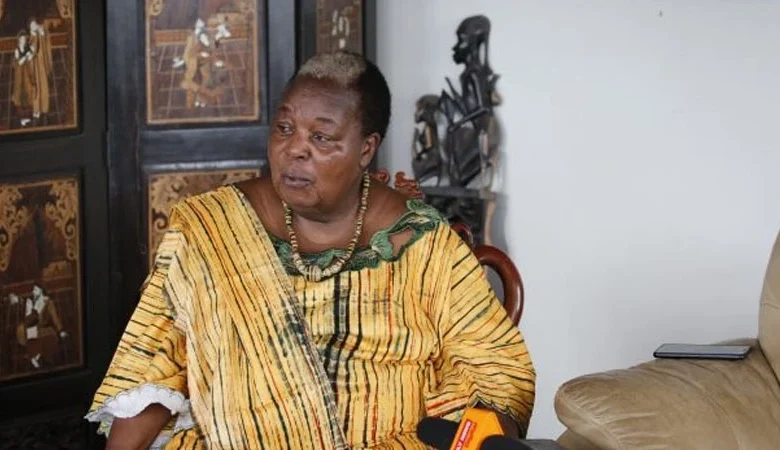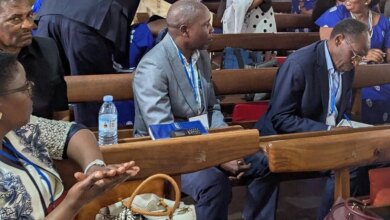Notable feats for TZ women

DAR ES SALAAM: AS Tanzania joins the rest of the world to mark International Women’s Day today, the country has made remarkable strides in addressing key issues identified as critical for women in the Beijing Platform for Action including empowering the group to play a vital role in national development.
This year International Women’s Day coincides with the 30th anniversary of the Beijing Declaration and Platform for Action which was adopted at the Fourth World Conference on Women held in Beijing in 1995 under the leadership and dedication of a Tanzanian diplomat and advocate for women’s rights Gertrude Mongella, who was appointed as the Secretary-General of the Beijing Conference.
A cross section of stakeholders—including politicians, human rights activists, analysts and gender experts—have applauded the progress made in advancing the welfare of women and girls across key sectors such as education, health, water and business, stressing the need for the active involvement of both men and women to fully address the critical agendas set forth in the Beijing Platform for Action.
Speaker of the National Assembly Dr Tulia Ackson said that President Samia Suluhu Hassan has made various efforts to ensure that women and the girl child have equal opportunities in various development including business and, in this context, ensure that the key issues identified as critical for women in the Beijing Platform for Action are implemented in the country.
“Under her leadership, we have seen the implementation of strong policies and projects that have significantly benefited women and the girl child, particularly in education, health, business, water, politics and leadership,” said Dr Tulia.
In education sector, Dr Tulia said the government is implementing a fee- free education policy from primary to secondary school which has expanded opportunities for the girl child.
She added that to date girls make up to between 48 and 50 per cent of primary school students and more than 50 per cent of secondary school students.
“All of these girls are benefiting from education without any barriers. In the past, when parents had both a son and a daughter who needed school fees, they would often choose to send the son to school, telling the daughter that there wasn’t enough money for her education. By introducing fee-ree education, we are now witnessing girls gaining equal rights to attend school, just like boys,” she said.
She further said that there has been an increase in the number of female students joining secondary education compared to previous years. Dr Tulia said that out of the 974,332 students selected to join secondary school, 525,225 equivalent to 53.9 per cent are girls.
She attributed the progress to the successful implementation of the fee-free education policy. She also highlighted that prioritising female students in loan provisions for higher education has significantly increased their enrolment and participation across various academic fields.
In the health sector, she said that the government has improved access to family planning services and constructed a total of 1,368 health facilities, including dispensaries, health centres and district hospitals, over the four years of President Samia’s administration.
“As a result of these efforts, the number of health centres has increased from 8,458 in 2020 to 9,826 in 2025. These improvements have contributed to a significant reduction in maternal deaths, from 556 to 104 per 100,000 live births,” Dr Tulia said.
Dr Tulia further said that the government has created a conducive environment for women entrepreneurs by providing low-interest loans worth 3.39 tri/- through various programmes aimed at empowering citizens.
She said of the funds, 1.76 tri/-, equivalent to 49 per cent, has been allocated to 11,421,765 women, making up 46 per cent of the total beneficiaries.
In the political and leadership sector, the country has witnessed an increase in the number of women holding higher leadership positions in the government and various institutions.
Dr Tulia said the increase is a result of the implementation of the national Gender Policy, which aims to promote gender equality in decision-making positions.
She said President Samia has demonstrated strong commitment by appointing a significant number of women to top government positions, including 36 per cent representation in the cabinet, 37 per cent in Parliament, 21.4 per cent in diplomatic posts and 34.2 per cent of leadership positions at the local government level, particularly in councillor roles.
“This progress proves that we have made significant strides in increasing women’s participation in leadership across the nation,” she said.
ALSO READ: Breaking barriers: Journey of women in Tanzania politics
Director of Gender and Women Development at the Ministry of Community Development, Gender, Women and Special Groups Mr Badru Abdulnuru said that Tanzania has made great strides 30 years after Beijing Conference in uplifting the welfare of women and the girl child.
He said that the country has made progress in safeguarding the welfare of the girl child through enactment of the Law of the Child Act 2009 which protects both girl and boy child. The country has also ratified various international conventions including the Convention on the Rights of the Child.
On women’s right in leadership, he said the country has made progress and efforts are still underway to bring equality of women involvement in leadership.
He said the Gender Policy 2023 has broadly addressed women’s participation in leadership. It emphasises the importance of ensuring that women are given opportunities to take part in leadership and decisionmaking roles with the aim of building their confidence so they can actively participate and compete for positions on equal footing with men.
He said currently women are participating actively in economic activities and they are making a substantial contribution to the national income.
“This is clearly reflected in everyday life, as in our communities, we can see a high level of women’s engagement in economic activities, ranging from the production of various goods to other income-generating ventures,” he said.
However, he said all the achievements result from the government’s efforts to invest in ensuring that women also have opportunities to participate in the economy.
He said significant efforts have been made—not only for women but also for men in improving access to capital, training and production technologies. Mr Abdulnuru said to ensure women’s participation in economic activities, the government introduced systems that enable them to access capital.
This includes the 10 per cent fund derived from councils’ revenues, which provides loans 4 per cent for women, 4 per cent for youths and 2per cent for people with disabilities. On her part, Twaweza East Africa Director of Projects Ms Annastazia Rugaba, praised the progress in education, with 95 per cent of children enrolled in school.
“Girls are staying in school longer than boys, which is a big step towards empowering the girl child through education,” she said.
She acknowledged persistent challenges like genderbased violence, early marriage and boys’ dropout rates saying, “our goal is not to uplift girls at the expense of boys but to ensure all children stay in school and thrive.”
Ms Rugaba added: “We are working hard to eliminate these barriers and with programmes like ‘Return to School,’ many girls who dropped out due to early pregnancies are now going back to school to complete their education.”
Executive Director of the Tanzania Media Women’s Association (TAMWA), Dr Rose Reuben, highlighted Tanzania’s ongoing efforts to combat GBV saying, “the National Action Plan to End Violence Against Women and Children strengthens cooperation between the government, CSOs and communities,” she said.
She praised the government for passing new laws, including the Land Act, which grant women the right to own property, a groundbreaking achievement for women’s empowerment.
“These laws are part of our commitment to ensuring that women’s rights are protected, and it is important to break systemic barriers and raise awareness,” said Dr Reuben.
Dr Reuben highlighted the establishment of national initiatives to end gender-based violence, emphasising the role of media in raising awareness. She said collaboration between the government, NGOs and the media has been crucial in the fight against violence.
Tanzania Women Cross Party (TWCP) – Ulingo platform, Coordinator of the Dr Ave-Maria Semakafu, reflected on the history of women’s rights advocacy.
She said that the Beijing Conference created a global platform for tackling the challenges and led to the establishment of national and regional agendas focused on advancing women’s rights and empowerment.
“We don’t want to wait instead we want to lead. We must transform systems and create an environment that actively supports women’s leadership,” Dr Semakafu asserted.
On her part, Ms Mongella brags of the revolution made due to the conference from setting the global tone on issues of gender equality and women’s empowerment, whereby today women and men are looked at as equal citizens.
She referred to the conference as among the largest conferences ever to be held in the UN as it gathered together around 50,000 people from 185 nations meeting in Beijing.
She said that her statement to quote: “The revolution of equality between men and women has begun, there is no going back” is something that has remained in her heart until to date.
“This is a profound revolution in human society and sometimes I feel sad to see that we, as women and sometimes even men, say that these women’s issues are just for women. This is not true; all the decisions we made in Beijing show that this is an agenda for the entire society,” she said.
She said that discrimination against women has persisted for decades, stressing the need for the entire society working together to eradicate it for the benefit of all.
Ms Mongella said that 30 years after the Beijing Conference, a monumental challenge remains, as still gender inequality has been profoundly embedded in society for centuries.
“We still have work to do, this is an unfinished revolution. It is a transformation and reform that is not yet complete, but we should not lose hope. This ailment has existed for years and centuries thus it cannot be cured in just one day,” she said.




